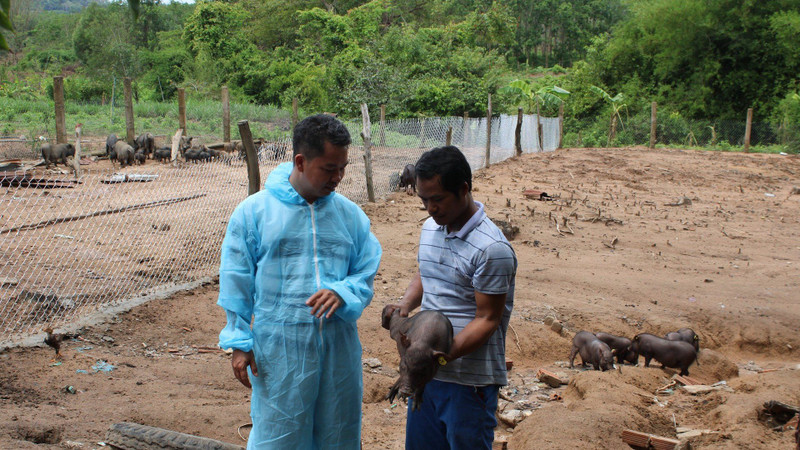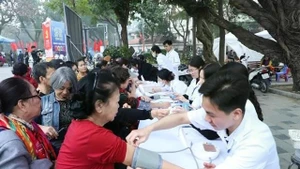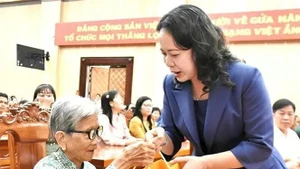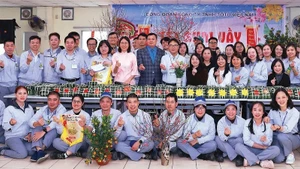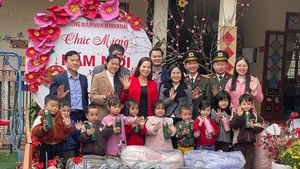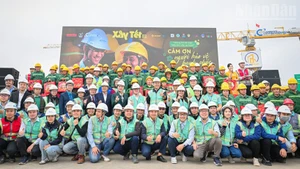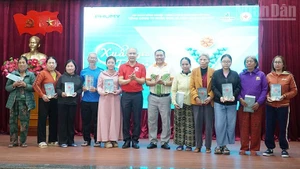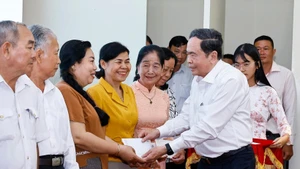Binh Thuan is a province with 34 ethnic minorities, concentrated in 15 pure communes and 32 mixed villages across 8/10 districts, towns and cities of the province, with 105,295 people, accounting for over 8.4% of the province’s population; there are 10 villages in extreme difficulty, three communes in area III, three communes in area II, and 25 communes and towns in area I in the ethnic minority and mountainous areas.
Ethnic minorities reside widely throughout the province with the common form of residence being intermingling. Each ethnic group has its own cultural identity, customs, practices, and festivals, which are very rich and diverse, creating unity in the local culture.
Tran Nguyen Loc, Director of the Department of Natural Resources and Environment of Binh Thuan Province, said that the province is currently implementing the policy on supporting production land for ethnic minorities with the goal of helping poor ethnic minority households, including poor Kinh households living in communes and villages in extreme difficulty that do not have production land or lack more than 50% of production land according to local regulations, to resolve the lack of production land and support job conversion.
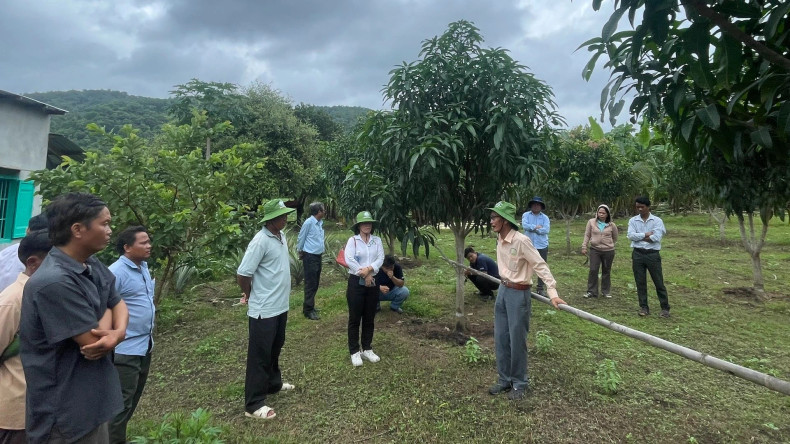 |
| Land policy for ethnic minorities aims to resolve the issue of land allocation, land lease, and change of land use purpose for ethnic minorities, improve their lives, and stabilise their lives in the long term. |
Recently, the Binh Thuan Provincial Ethnic Committee has issued guidelines on the process of reviewing and approving the list of beneficiaries of the policy of supporting loans for residential land, housing, production land, job conversion, and scattered domestic water.
However, currently, the content of supporting production land for ethnic minorities is difficult to implement because the locality no longer has land funds to support, while the localities reported that there are households lacking and households without production land.
According to the report of the districts on the need for support for production land in the period of 2021-2025, there are 928 households. These include: Tuy Phong District: one household; Ham Thuan Bac District: 411 households; Ham Tan District: 23 households; Tanh Linh District: 473 households; and Duc Linh District: 20 households.
Therefore, in November, the People's Council of Binh Thuan province has just passed a resolution regulating land policies for ethnic minorities in the province to support land for ethnic minorities, individuals who are ethnic minorities who are poor households, near-poor households in accordance with regulations and actual conditions of the locality.
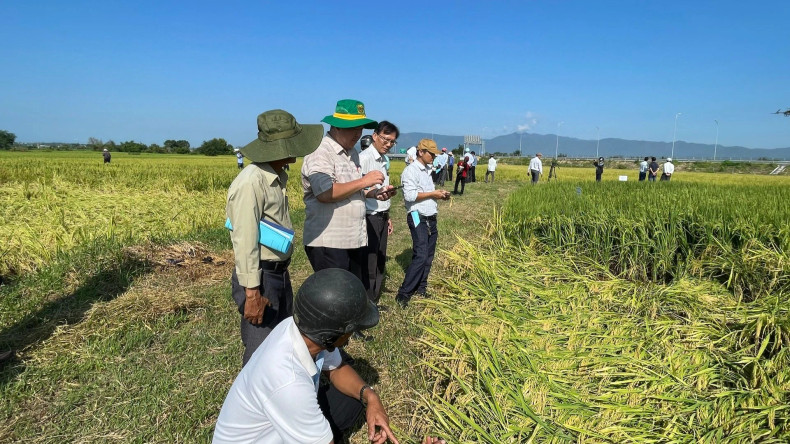 |
| With land, ethnic minorities will increase production. |
This resolution stipulates policies to ensure land for community activities for ethnic minorities; policies to support land for individuals who are ethnic minorities who are poor households, near-poor households in ethnic minority and mountainous areas in the province in accordance with Article 16 of the 2024 Land Law.
Ethnic minorities who do not have land for community activities will be subject to this regulation. In addition, the regulation also applies to ethnic minorities who are in poor households and near-poor households in ethnic minority and mountainous areas in the province and are in one of the following cases: having no residential land or no agricultural land, or lacking residential land or agricultural land compared to the limit; having been allocated land or leased land by the state but now having no residential land, no agricultural land or lacking residential land, lacking agricultural land compared to the limit; being leased non-agricultural land other than residential land by the state for production and business.
The principle of support is to determine ethnic minority and mountainous areas in the province according to the decision of the competent authority; land fund arrangement to implement the policy under this Resolution is based on the local land fund conditions and approved land use planning; land allocation within the limit, land lease to implement the land support policy for individuals according to this Resolution is implemented according to the decision of the provincial People’s Committee.
Subjects receiving land support under this Resolution must use the land for the right purposes allocated by the state, allow land use purpose conversion, lease land and land user rights as prescribed in Articles 26, 31 and 48 of the 2024 Land Law.
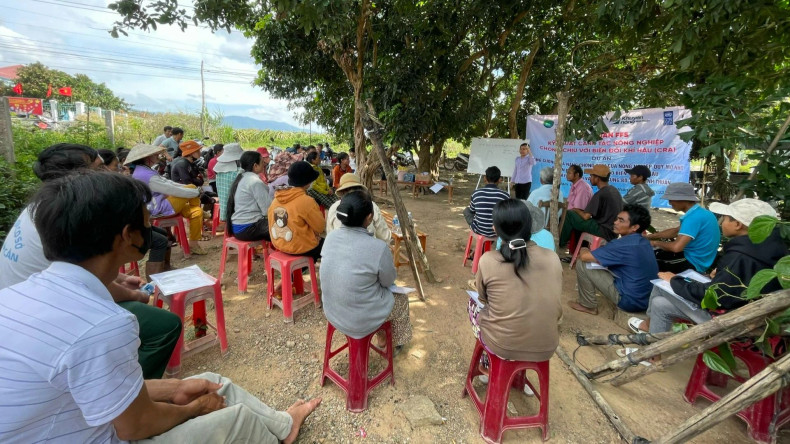 |
| Farmers are trained in production. |
Ethnic minorities who do not have land for community activities are allocated land for community activities in accordance with customs, practices, beliefs, cultural identity and actual conditions of each region and do not collect land use fees.
Specifically, for areas with urban construction planning at a scale of 1:500 and rural residential construction planning approved by competent state agencies, the area of land allocated for community activities to ethnic minorities shall be in accordance with the approved planning.
For areas without urban construction planning at a scale of 1:500 and rural residential construction planning, the area of land allocated for community activities to ethnic minorities shall be in accordance with current regulations of the Ministry of Natural Resources and Environment.
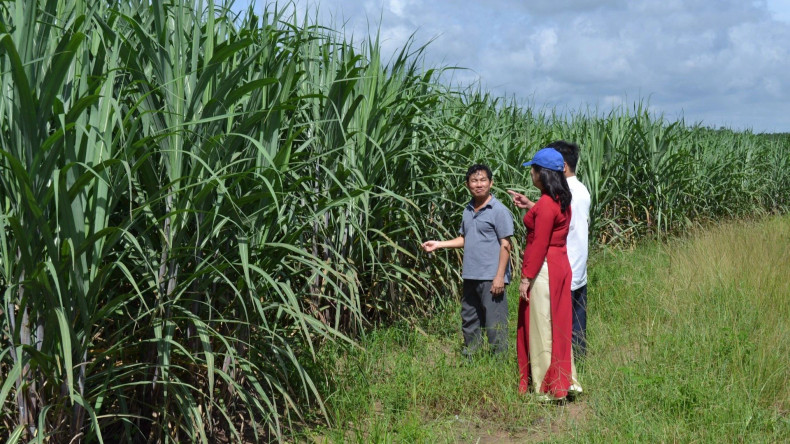 |
| People stabilise production when there is a policy. |
Land allocated within the limit, individuals who ensure the conditions for land allocation within the limit as prescribed by the provincial People’s Committee shall be exempted from or have their land use fees reduced.
Individuals who have a need to use land shall be allowed to change the land use purpose to residential land within the limit of land allocation and shall be exempted from or have their land use fees reduced in accordance with the provisions of law.
Individuals are allocated agricultural land within the limits prescribed by the provincial People's Committee and are not subject to land use fees.
Individuals who meet the prescribed conditions and have a need to rent non-agricultural land other than residential land for production and business purposes will be leased land by the state and will be exempted or have their land rent reduced.
